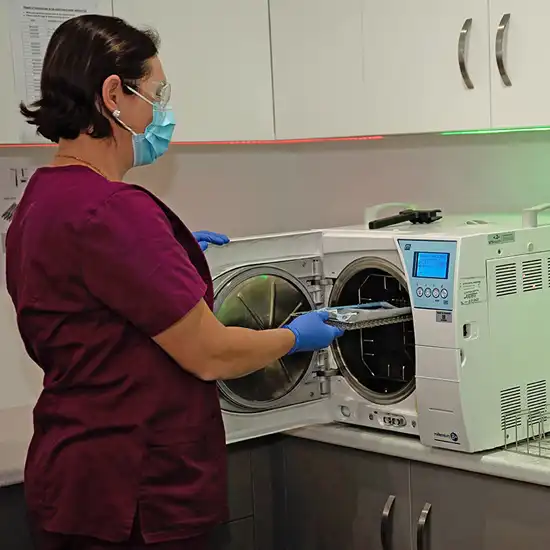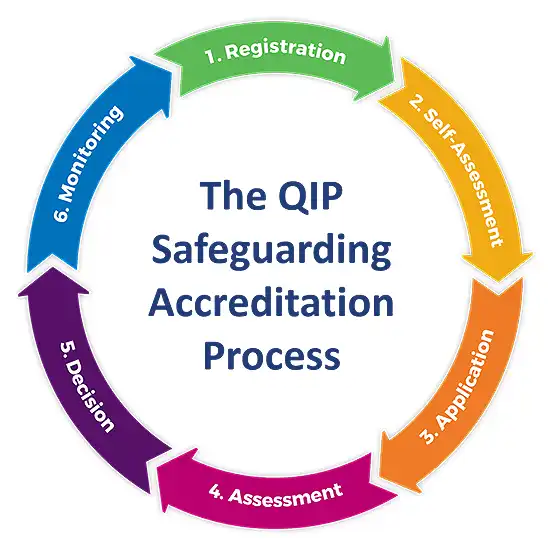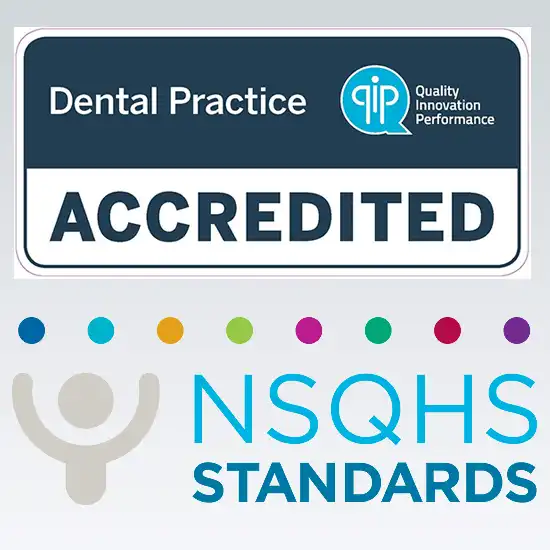QIP Accreditation
Best Practice Standards
Our dental practice is QIP accredited, following the best practice standards in Australia with stringent infection control protocols. QIP accreditation ensures that we deliver the best quality treatment for our patients in the safest environment at our clinic. QIP supports our dental practice’s commitment to continuous quality improvement.
What is accreditation?
Accreditation is independent recognition that an organisation, service, program or activity meets the requirements of defined criteria or standards.




QIP Accreditation stands for Quality Improvement Program Accreditation, which is a process of evaluation and accreditation for healthcare organizations in Australia. The program is designed to ensure that healthcare organizations meet national standards for safety and quality of care. QIP accreditation is a voluntary process, but it is becoming increasingly popular among healthcare organizations because it demonstrates their commitment to quality and patient safety. QIP assists organisations to choose the quality improvement framework best suited for them.
Accreditation can help an organisation to:
- Provide independent recognition that the organisation is committed to safety and quality
- Foster a culture of quality
- Provide consumers with confidence
- Build a better, more efficient organisation with quality and performance assurance
- Increase capability
- Reduce risk
- Provide a competitive advantage over organisations that don't have accreditation
- Comply with regulatory requirements, where relevant.
- Increase capability
- Reduce risk
- Provide a competitive advantage over organisations that don't have accreditation
- Comply with regulatory requirements, where relevant.
- Provide independent recognition that the organisation is committed to safety and quality
- Foster a culture of quality
- Provide consumers with confidence
- Build a better, more efficient organisation with quality and performance assurance
About QIP Accreditation
Accreditation is voluntary, profession-led and aims to promote continuous quality improvement. The program is responsive to the needs and expectations of the dental profession. Also, this provides a sound evidence-based approach to accreditation by focusing on the first six NSQHS Standards that are applicable to dentistry. During the accreditation cycle practices undertake a process of continuous quality improvement and submit a mid-cycle report to QIP. This mid-cycle report supports practices to demonstrate ongoing compliance with the NSQHS Standards.
Accreditation assists dental practices to:
- Build a culture of quality and patient safety
- Reduce clinical and general risks
- Educate and engage staff in quality improvement processes and systems
- Establish competitive advantage over non-accredited dental practice
- Promote the quality and safety of services to both patients and the community.
The process
QIP Accreditation process involves a comprehensive review of an organization’s policies, procedures, and practices, as well as an on-site evaluation by a team of qualified assessors. The assessors evaluate the organization’s compliance with the National Safety and Quality Health Service Standards, which cover a wide range of areas including clinical governance, infection prevention and control, medication management, and patient-centered care.
Why is QIP Accreditation important?
This process is important because it provides healthcare organizations with a framework for continuous quality improvement. By meeting the national standards for safety and quality of care, healthcare organizations can enhance their reputation, improve patient outcomes, and reduce the risk of adverse events. Accreditation also helps healthcare organizations to identify areas for improvement and to implement evidence-based best practices.
QIP Accreditation helps healthcare organizations
QIP Accreditation is a rigorous process that helps healthcare organizations to improve the quality and safety of care that they provide to their patients. By participating in the program, healthcare organizations can demonstrate their commitment to quality and patient safety, and can work towards continuous improvement in all aspects of their operations.
Payment Options / Plans
Payment plans are essentially loans, which can support you in managing the high cost of dental treatment. Rather than paying for your dental work in an upfront lumpsum, a payment plan allows you to pay in instalments over a period of time. We have onboard, payment plan service providers who will make your payment plan’s instalments even more affordable.
There are several payment options available at our surgery including Cash, Cheque, EFTPOS, Credit Card, HICAPS, AMEX and Direct Deposit.







